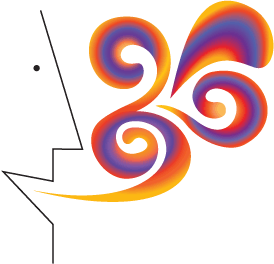We need a better way to communicate and solve problems … with everyone.
We all know that listening, paying attention, and being kind is essential to every good relationship. And yet, most people feel they can no longer talk to a colleague, a neighbor, or their Uncle Pete at the Thanksgiving dinner table without starting a fight and ruining the meal. Divisiveness is the new national pastime. So, we seek solace from kindred spirits and block out everyone else.
While understandable, walling out others is preventing us from fully doing what we humans are brain-wired to do, connect. To connect we must be willing to participate, and to participate takes time and effort, two precious commodities many of us are often unwilling to part with, including me. Take time. You can ask me to do many things, but don’t ask me to slow down. I want and need to say things and do things. It’s how I roll. Or used to. I’ve learned that taking the time to participate more, to connect more with people, generates more than connections here on LinkedIn. It teaches me something new, opens my mind and my heart, and supports my immune system, seriously. Connection enriches me, us, on so many levels.
My long background in improvisation first taught me how to connect, because doing improv well demands generosity and attentiveness.
“Yes, and…” is the primary rule of improv, which means first, listen and observe, then respond. People mistakenly think that good improv is about quick thinking when it’s actually about being in the present moment and allowing what’s happening to unfold. Improv’s second rule is to “make your partner look good.” That means you’re always looking to see how you can support one another, because your partner’s success and yours are connected.
I often tell my students that if we all lived by the rules of improv, the world would be a better place. Last year, I decided to do something about it. I founded The Project Connect.
The Project Connect is simple in its intent: you can be a member if you are willing to make an effort to connect with others in a meaningful way. I’ve developed programs that use improvisational exercises to help people discover how to connect, find common ground, unearth shared values, enhance empathy, and solve problems. Participants get to know one another in a safe environment and walk away with tools needed for meaningful connection and more effective communication with pretty much anyone in their lives. Kindness, civility, and compassion rise spontaneously as a result of this kind or work. And then… things can begin to change, at the office, in our communities and organizations, even at our dinner tables.
It can happen. It has already started.
